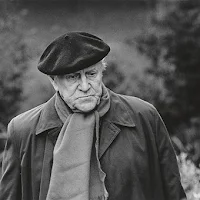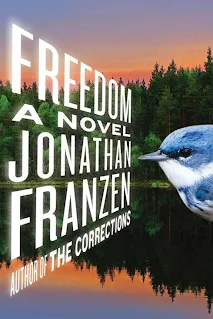 |
| Robin Baker |
Today we're joined by Australian writer Robin Baker, author of Killing Richard Dawson, published by Pantera Press and recently reviewed and given four stars.
Thanks so much for joining us Robin. When you were writing the characters within Killing Richard Dawson, did you feel they were representative of Generation Y in Australia?
I wouldn’t want to speak on behalf of an entire generation, but the characters and their attitudes were certainly accurate to what I experienced at that age. I have had feedback from readers of various generations saying how much they related to the themes of hopelessness and uncertainty in the novel, which are feelings a lot of us deal with when we’re that age, so I’d suggest it speaks more about being a certain age than a particular generation.
Being a young writer and belonging to Gen Y yourself, what would you like people belonging to other generations to know about Gen Y? Did you intend to communicate any of these in Killing Richard Dawson?
I don’t agree with art that ‘preaches’ or tries to convey a particular message or point of view, so I make a point not to tell anyone how they should feel about a given topic. I try to be as emotionally honest as I can and let the work speak for itself.
There's a paragraph on page 144, where Mel – who has a crush on the narrator – is introduced by him to Jade, with whom he has a romantic interest. There is an awkward stretch of silence between the three characters, and you describe the sequence of meaningful glances between each of them so perfectly that it was one of the funniest moments in the book for me. What motivated you to write in such a way? Were you simply trying to highlight the tension between the characters or were you trying to make us laugh?
I like to tread the fine line between comedy and tension/horror whenever I can, so this seemed like a good opportunity. Embarrassing situations are always funnier when they involve someone else! Comedy is good way to get people to lower their defences; I think people are much more willing to go to very dark places with you if you can make them laugh along the way.
Characters discussing nightclubs over several pages in Killing Richard Dawson reminded me of characters talking about restaurants in American Psycho by Bret Easton Ellis. Was this a silent nod to the classic or completely unintentional?
I’m not sure if I had read American Psycho when I wrote that scene (but have since read it and loved it) but the joke here was that, throughout the book, whenever a character discusses anything serious, or emotional, or indeed anything that actually matters, they are quickly dismissed and the subject is changed. This particular scene is possibly the longest dialogue exchange in the entire book and is about the most vapid of subjects, which I thought was a nice irony.
Do you have any literary influences?
I admire Don DeLillo very much. Each of his works is unique and I think Underworld is one of the greatest novels ever written. Stephen King was a big influence while I was growing up and I still enjoy his novels today. I very much admire writers of believable dialogue and character who offer moments of truth or insight into ourselves and each other.
When asked if he's ever delved into the world of Dean Koontz, Robin had this to say:
I've read three or four Dean Koontz books (not sure of the titles now, it was a long time ago) but never really got into them - they felt too much like Stephen King Lite. One of the things I enjoy most about King (and something I feel he's very underrated for) is the human element of his books. His characters are so believable and he offers some great insight into people, which I never got from Koontz. I may have to try some of his newer stuff and see if it changes my mind.
I find it fascinating that you decided to leave your career as an English Teacher and take up work as a Funeral Director. Is the funeral industry what you expected?
I’m not sure what I expected when I first started, but it was definitely an eye-opening experience! It’s an industry that tends to be shrouded in mystery, so it was interesting to see what really happens behind the scenes, so to speak. It was challenging, rewarding, confronting and strangely fascinating. I have no regrets about my time there; I met some wonderful people, saw some things I will never forget and gained some interesting insights into life, people, grief and death, among many other things. It’s certainly not for everyone, but it was a great industry to be a part of and I enjoyed my time there very much.
What prompted this career change and how has the experience shaped or enriched your writing?I had always been curious about the industry and an opportunity arose just after my current teaching contract expired. I wasn’t enjoying teaching at the time so decided to take a chance and ended up staying there for nearly six years. It taught me a lot about myself and others and is a job that really makes you reassess what is important in your life. My next novel, Chasing the Sun, was written during this time and deals with themes of mortality and belief and what we leave behind.
Some writers have a particular writing regime or preferred method of writing. How do you prefer to work and do you have any habits?
I write on a laptop but always carry a notebook with me (or a note-taking app on a phone, if a notebook is not appropriate) where I’ll write scenes, ideas, or even just single lines of dialogue. I will either work in silence, or find one particular piece of music that suits the tone of the scene I’m working on, then play it on repeat until I drive everyone else crazy. I prefer working earlier in the day and into the afternoon when possible, so I usually do the majority of my writing on the weekends or days off and use evenings for editing.
As a former English Teacher, are you also a voracious reader and do you have any favourite authors or books you'd like to share?
I’m always trying to read more. I write book reviews for a local newspaper so I’m lucky enough to get new releases fairly regularly, which is nice! Some of my personal favourite authors are Stephen King and Don DeLillo, as I mentioned, but I’m also a fan of clean, stripped-back, minimalist writing such as Amy Hempel, Bret Easton Ellis, Cormac McCarthy and Chuck Palahniuk. If you want something completely unique, I can recommend you check out Mark Danielewski’s House of Leaves, a true one-of-a-kind that you won’t soon forget.
I understand that you're working on your next novel Chasing the Sun. What can you tell us about it?
Chasing the Sun is “a twisted tale about Feng Shui, vampires, drinking, pet psychiatry, genocide, belief and mortality” and will be available in October this year from Pantera Press. I think it shares a similar tone and style with Killing Richard Dawson but tells a very different story and deals with different ideas and themes. I’m excited for its release and really hope you enjoy it!
Anything else you'd like to add?
Thanks for reading Killing Richard Dawson, I’m thrilled you enjoyed it! Thanks also for inviting me here today!













































